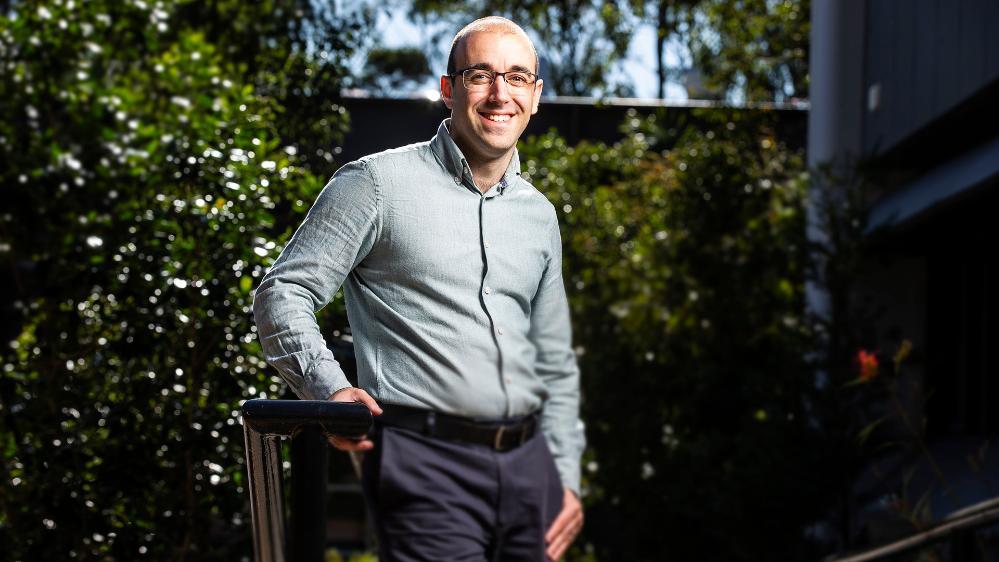UOW data science team to play leading role in effort to revolutionise energy sector

University of Wollongong (UOW) researchers will contribute to a new federally funded research initiative, the TIDE Research Hub, which will integrate data science techniques with engineering and the physical sciences to transform Australia's offshore energy industry.
The Transforming energy Infrastructure through Digital Engineering (TIDE) Research Hub, led by the University of Western Australia (UWA), has been awarded $5 million through the Australian Research Council Industrial Transformation Research Program.
The ARC funding will be supplemented by an additional $20 million in cash and in-kind contributions through co-investment from industry partners, UWA, UOW and a number of leading international universities.
The TIDE Research Hub will launch in 2021 and will work over the next five years to unite insights from experimental and industry-generated data in order to improve the design and management of offshore energy infrastructure, a critical component of this nationally important industry.
Professor Phillip Watson at the University of Western Australia will lead the TIDE Research Hub.
"Offshore energy adds over $55 billion gross value to the economy annually and directly employs 100,000 people," Professor Phil Watson said. "The new TIDE Research Hub will provide enduring benefits to all Australians."
TIDE will bring together a team of leading Australian researchers alongside international and industry partners. It will draw experts from the core disciplines of oceanography, hydrodynamics, geotechnics and data science. The chief investigators comprise 17 researchers from UWA and three from the National Institute for Applied Statistics Research Australia (NIASRA) at UOW.
At the core of the research hub lies an international data science team, with Dr Andrew Zammit-Mangion (UOW) and Dr Ed Cripps (UWA) as team leaders.
Dr Zammit-Mangion, together with Dr Matt Moores, and Dr David Gunawan from NIASRA in the Faculty of Engineering and Information Sciences at UOW, form a major component of this team.
The group at UOW will help integrate uncertainty quantification, statistical inference, and artificial intelligence, with science-based models, to allow for improved evidence-based decision-making in various applications related to offshore engineering.
"This is a wonderful opportunity to bring two leading data science teams together, one at UWA and the other at UOW, to work on a problem of such national importance," Dr Zammit-Mangion said.
"Data science is revolutionising the energy sector. This Hub will be the national centre for transforming the way we use data for decision making in offshore engineering through the fusion of domain expertise and statistical inference."
International collaborators from the University of Texas, the University of Oxford, the Technology Centre for Offshore and Marine Singapore, the University of Southampton, HR Wallingford, Lancaster University and the Alan Turing Institute, will join the Australian team.
These researchers will work with an additional 17 investigators from industry partners, including three of Australia's largest LNG producers - Woodside, Shell and INPEX - as well as Lloyd's Register Group, Bureau Veritas, Fugro, Wood, the Australian Bureau of Meteorology and the Australian Institute of Marine Science.
Through this collaboration, the TIDE Research Hub will allow unprecedented access to industry field data as well as the collection of new observations, allowing deeper understanding of the real offshore environment.
"The TIDE Research Hub represents a tremendous opportunity to engage with key industry partners and world leading experts on applied research problems that can have genuine impact" said co-Deputy Director Associate Professor Scott Draper from UWA.
"It will provide access to novel, high quality field data which will enable fundamental insights into real offshore environments."
As the Australian energy industry shifts to long-term operations, the TIDE Research Hub will be well placed to lead transformational research. TIDE will focus on lowering the cost of future production in order to assist Australian companies to cost-effectively maximise LNG export, safely manage assets while minimising environmental risk.
The skills and strategies developed by the TIDE Research Hub for the offshore energy industry will be readily transferable to other offshore industries, such as renewable energy and aquaculture.






